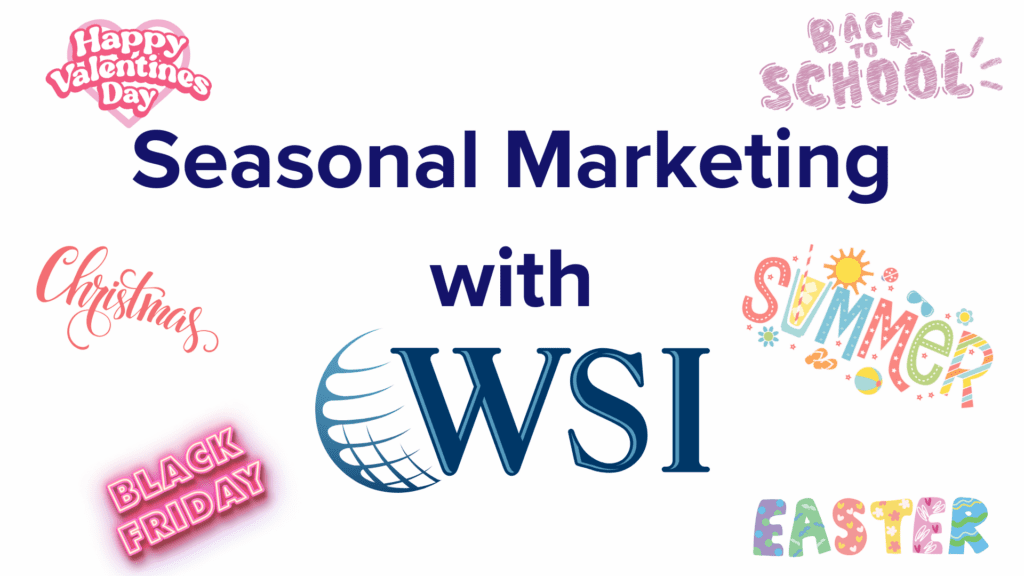
Marketing campaigns that align with the seasons can help businesses connect with customers during seasonal holidays and special events. Taking advantage of these seasonal opportunities, such as launching a special offer for Mother’s Day or a summer sale, is a smart way to boost sales and ensure your brand remains memorable throughout the year.
In this blog post, we’ll explore how to plan and execute successful seasonal marketing campaigns to boost sales and engagement.
Understanding Seasonal Marketing
Seasonal marketing involves aligning your promotions and product offerings with particular times of the year, such as holidays, events, or other notable occasions. For example, Spotify Wrapped, which, since 2016, has been giving users an annual insight into their music preferences. It’s a brilliant seasonal campaign that has become a consistent, social-media-driven tradition that users eagerly anticipate each year. Spotify Wrapped works well because it’s consistent, it grows in prominence every year, and it creates a sense of excitement and personal connection.
Seasonal marketing is successful because it taps into predictable consumer behaviour, often tied to emotions or habits linked to certain times of the year. Unlike general marketing, which promotes products and services year-round, seasonal marketing focuses on aligning campaigns with relevant cultural events or holidays to maximise impact.
To create successful seasonal marketing campaigns, start by identifying which seasons or events are most meaningful for your business. Here are some popular seasonal events:
- New Year’s Day
- Valentine’s Day
- St. Patrick’s Day
- Mother’s Day
- Easter
- Father’s Day
- Back-to-School Season
- Halloween
- Black Friday/Cyber Monday
- Christmas
During these periods, people are often more receptive to offers, discounts, and products tailored to the specific occasion. To leverage this, try creating a sense of urgency and excitement, encouraging customers to make a purchase.
Setting Clear Goals & Objectives
For any marketing campaign, it’s crucial to set clear goals and objectives. When planning a seasonal campaign, here are the recommended steps:
- Define Your Goals: Set clear targets for your seasonal marketing campaign. For instance, you might aim to increase sales, enhance brand awareness, or engage a particular audience segment.
- Establish Measurable Objectives: Set specific, measurable targets that can help you track your progress. For example, you might aim to boost sales by 20% during the Christmas period or grow your social media following by 15%.
- Identify Key Performance Indicators (KPIs): Decide how you will measure the success of your campaign. Common KPIs include website visits, conversion rates, social media interactions, and email open rates.
By defining your goals, objectives, and KPIs, you can ensure your efforts are focused and you can effectively measure the impact of your seasonal marketing.
Developing a Comprehensive Seasonal Marketing Plan
A well-rounded seasonal marketing plan should incorporate multiple strategies to reach a broad audience. Key components include:
- Market Research: Understand your audience’s interests, behaviours, and spending habits throughout the year. This will help you create campaigns that resonate and are relevant.
- Content Strategy: Develop a content calendar outlining key topics and themes for each season. Include blog posts, social media updates, videos, email newsletters, webinars, seasonal guides, and more.
- Budget Planning: Allocate your budget across different marketing channels and activities to ensure you have enough resources to deliver effective campaigns.
- Team Collaboration: Involve different teams, including marketing, sales, and customer service, to ensure all aspects are covered and coordinated effectively.
Leveraging Digital Marketing Strategies
Digital marketing offers several tools to enhance your seasonal campaigns. Here are some strategies to consider:
- Content Marketing: Create quality content that is seasonally relevant. This could include blog posts, videos, infographics, or social media content that is helpful, entertaining, or informative for the season.
- Social Media: Use social media platforms to engage your audience and promote seasonal campaigns. Share festive posts, run competitions, and use trending hashtags to increase visibility. Facebook, Instagram, and X (formerly Twitter) are excellent platforms for real-time interaction.
- Email Marketing: Send targeted emails to your audience with personalised messages. Use email segmentation to tailor content to specific preferences, emphasising seasonal promotions, exclusive discounts, and limited-time offers.
- Paid Advertising: Consider using paid ads to reach a larger audience during seasonal periods. Platforms like Google Ads and Facebook Ads allow you to target specific demographics, ensuring your seasonal offers are seen by the right people.
The Value of Planning Ahead
Planning in advance is crucial for successful seasonal campaigns. By preparing early, your business can:
- Optimise Budget and Resources: Ensure you have the resources to execute your campaign effectively without overspending.
- Avoid Last-Minute Stress: Advance planning prevents the stress of last-minute rushes, giving you time to refine and perfect your campaigns.
- Ensure Team Coordination: Early planning improves coordination across teams, ensuring everyone is aligned and working towards the same goals.
Staying on Top of Trends & Changes to Adapt Your Strategy
The digital marketing landscape changes rapidly, and consumer trends are constantly evolving. Staying informed is key to successful seasonal marketing. Keep these tips in mind:
- Monitor Industry Trends: Keep an eye on shifts in your industry and customer behaviour to stay relevant and adjust campaigns accordingly.
- Competitor Analysis: Observe what your competitors are doing during key seasonal events. Learn from their successes and identify areas where you can differentiate.
- Adapt Quickly: Be prepared to adjust your campaign based on real-time data and feedback. Flexibility allows you to refine your approach for better results.
By staying proactive, monitoring industry trends, and being adaptable, your seasonal marketing campaigns can effectively reflect the dynamic digital landscape.
Strategic seasonal marketing can boost sales and help you stay connected with customers throughout the year. By planning ahead, setting goals, and leveraging digital marketing techniques, your business can create targeted campaigns that drive engagement and revenue.
At WSI, we have the expertise to help businesses craft and execute successful seasonal marketing strategies. Get in touch with us today to see how we can support your seasonal campaigns and enhance your business success.









